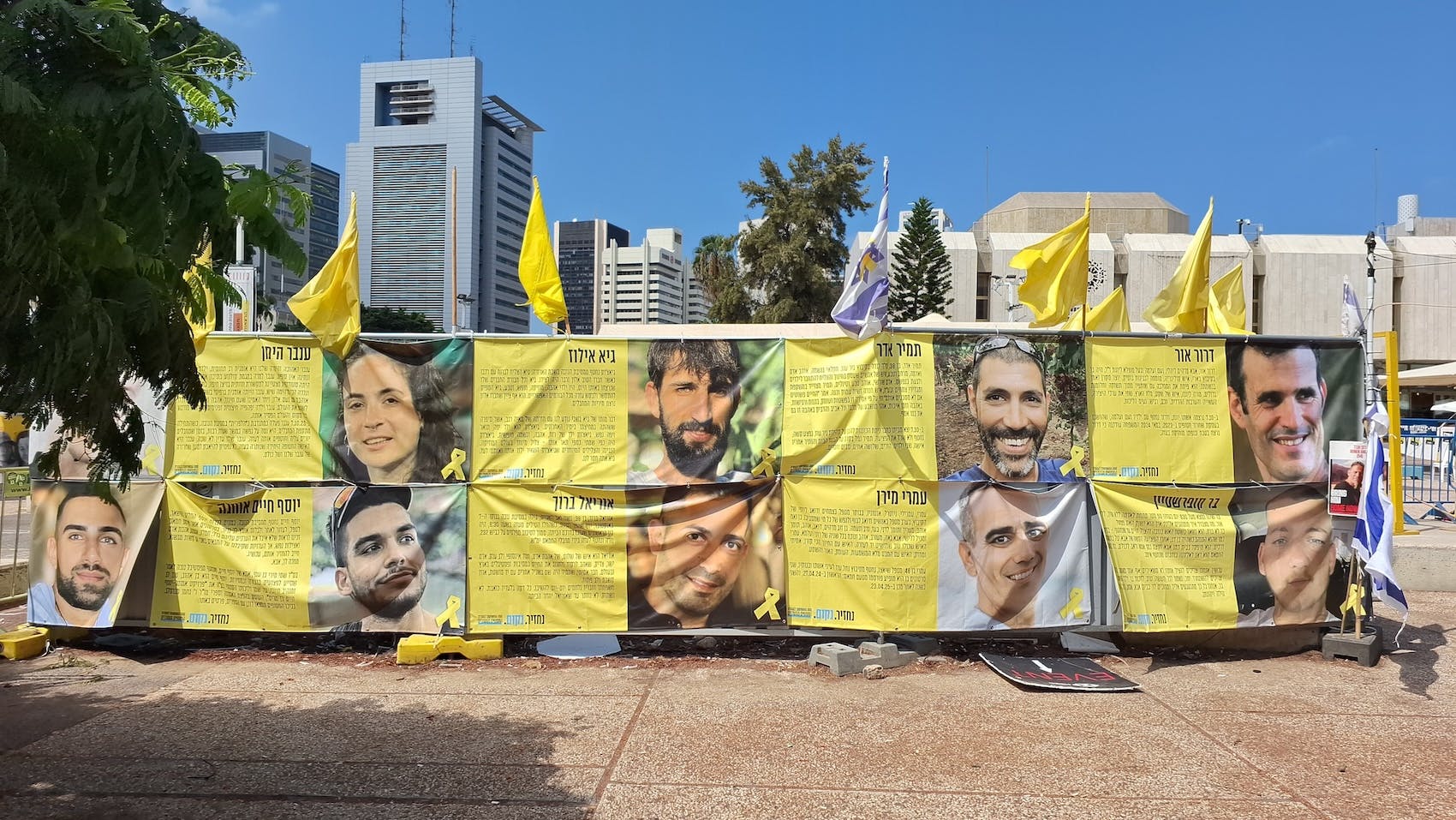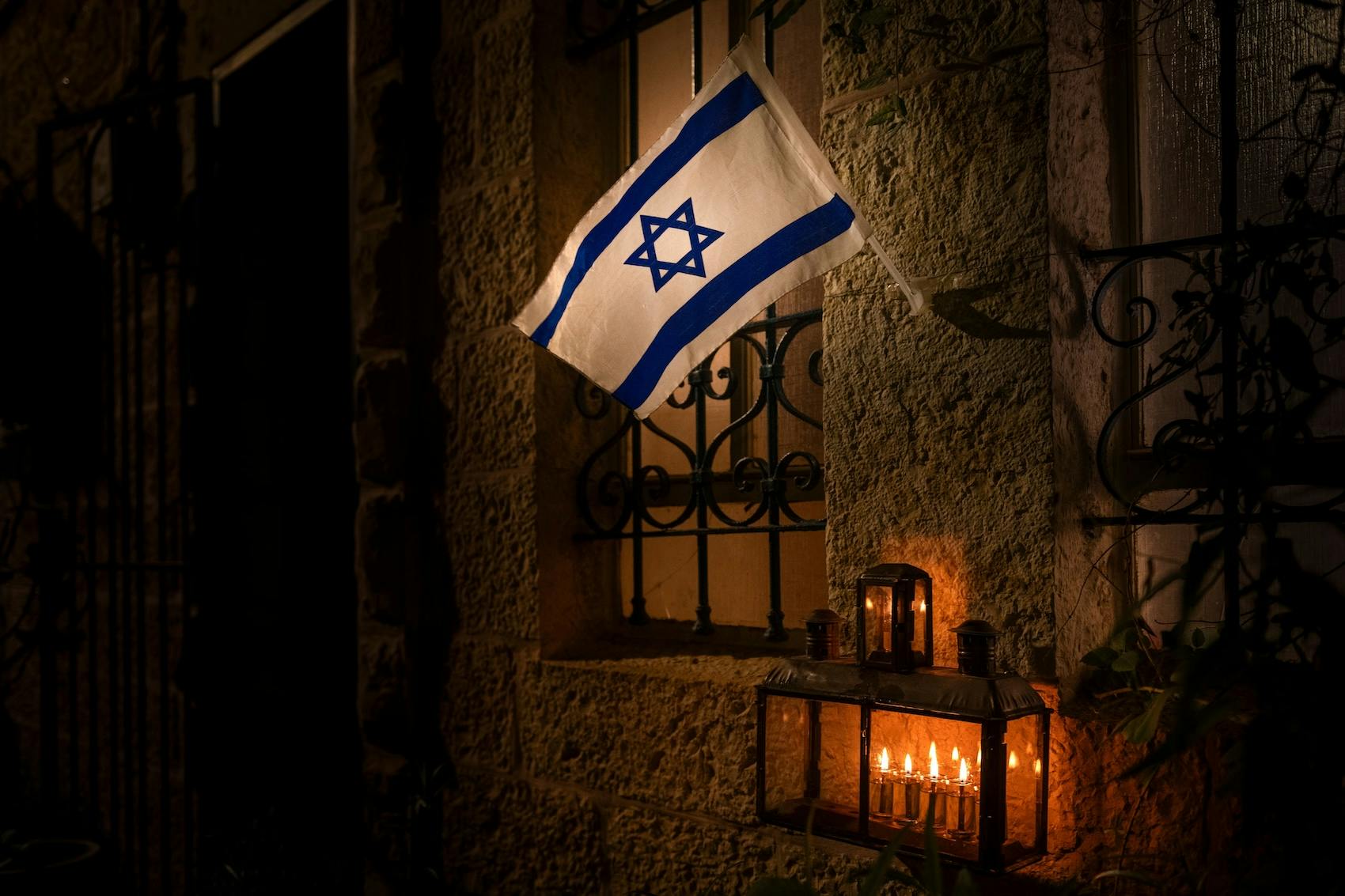"Then the Lord spoke to Moses, saying, "Speak to the children of Israel, saying: ''The fifteenth day of this seventh month shall be the Feast of Tabernacles for seven days to the Lord.
Leviticus 23:33
The Feast of Tabernacles (Sukkot) is one of three High Holidays in the Jewish calendar and one of the more joyful (Leviticus 23:40) celebrations — commemorating the miracles God performed for the people of Israel when He took them out of Egypt, their wandering in the wilderness for 40 years and God's faithfulness.
During Sukkot people in Israel are building booths (sukkot) wherever they can, on balconies, in gardens and communal courtyards, and even on sidewalks for restaurant diners.
The Sukkah is usually made of decorated tarps as walls held up by metal poles and a roof of palm branches (spread out enough to see the stars). Inside the Sukkah, we place a table and chairs since all the meals are eaten in the sukkah, and decorate it wall to wall with colorful string decorations, lights, and sometimes fake fruit since the holiday celebrates the yearly harvest, which takes place in the fall.
As it is commanded to dwell in the booth for seven days, many religious Jews will put mattresses in the Sukkah and sleep beneath the stars.
Where did this special feast start? Let's explore its origins in the book of Leviticus.
The Feast of the Ingathering
When God took the people of Israel out of Egypt, they wandered the desert and lived in tents for forty years before finally entering the promised land.
But God desired to give them a home, a safe place where he could pour out his blessings in abundance. In the meantime, before conquering the land promised to Abraham and his descendants, there first came a time of rejoicing over their new-found freedom and abundance:
"Then the Lord spoke to Moses, saying, "Speak to the children of Israel, saying: ''The fifteenth day of this seventh month shall be the Feast of Tabernacles for seven days to the Lord. On the first day there shall be a holy convocation. You shall do no customary work on it. For seven days you shall offer an offering made by fire to the Lord. On the eighth day you shall have a holy convocation, and you shall offer an offering made by fire to the Lord. It is a sacred assembly, and you shall do no customary work on it" - Leviticus 23:33-36
Similarly to Yom Teruah (Rosh Hashanah) and Yom Kippur (the Day of Atonement), the Feast of Tabernacles is set apart as a holy day. The Lord repeatedly says that ''no work should be done'' on this day, a merciful reminder that He took them out of Egypt to give them rest:
"And you shall take for yourselves on the first day the fruit of beautiful trees, branches of palm trees, the boughs of leafy trees, and willows of the brook; and you shall rejoice before the Lord your God for seven days. You shall keep it as a feast to the Lord for seven days in the year. It shall be a statute forever in your generations. You shall celebrate it in the seventh month. You shall dwell in booths for seven days. All who are native Israelites shall dwell in booths, that your generations may know that I made the children of Israel dwell in booths when I brought them out of the land of Egypt: I am the Lord your God.'' - Leviticus 23:40-43
The Four Species
In scripture, there are four plants known in Hebrew as Arba'at HaMinim (the four species), which represent the oneness of Israel and the harvest:
"And you shall take for yourselves on the first day the fruit of beautiful trees, branches of palm trees, the boughs of leafy trees, and willows of the brook; and you shall rejoice before the LORD your God for seven days." - Leviticus 23:40
The three myrtle twigs and the two willows are tied together to the palm branch, creating a long and beautiful bouquet called 'lulav', which is waved north, south, east, and west as a blessing is recited to praise the God of the heavens and the entire earth.
Each of the four species relates to a particular organ through which man is to serve God:
- Etrog (citron) represents the heart, the place of love – understanding, and wisdom (Psalm 104:1).
- Lulav (a closed frond of the date palm tree) represents the backbone – uprightness (Psalm 92:13).
- Hadass (myrtle) represents the eyes – enlightenment (Zechariah 1:8).
- Arava (willow) represents the lips – the service of the lips, which is prayer (Psalm 68:5).
At the sukkah table, you will see the four different species that were carefully selected at the 'Shuk Araba'at Haminim" — the four species market.
Simchat Beit Hashoeva
Yeshua also celebrated the Feast of Tabernacles in Jerusalem, where he sat at the temple and taught the people:
"On the last and greatest day of the festival, Jesus stood and said in a loud voice, “Let anyone who is thirsty come to me and drink. Whoever believes in me, as scripture has said, rivers of living water will flow from within them.” By this he meant the Spirit, whom those who believed in him were later to receive. Up to that time the Spirit had not been given, since Jesus had not yet been glorified." - John 7:37-39
Why was Yeshua teaching about living water? Because of Simchat Beit Hashoeva, which means 'Rejoicing of the Water-Drawing House'.
At the time, it was believed that Sukkot was the time of year in which God judges the world for rainfall. Therefore they would draw water from the pool of Siloam and enter through the Water Gate in a great and joyous procession, accompanied by the sound of the shofar, and then they would pour the water so that it flowed over the altar.
Yeshua was opening the eyes of the people to the eternal source of living water, one that they would taste from and never be thirsty again — inviting them to be satisfied in Him (John 4:4-19).
Sukkot is more than a time of thanking God for the miracles He performed in the past, but an invitation to accept Yeshua and the abundance of living water that flows from Him — giving life to all thirsty, wandering in the desert, searching for relief.
Yeshua and the Nations
God's great love set the people of Israel free from slavery and brought them to a resting place so they could enjoy fellowship with Him, enjoying all the great blessings and abundance.
However, the feast of Sukkot was not just for the people of Israel. It was also extended to the rest of the gentile nations.
"Then the survivors from all the nations that have attacked Jerusalem will go up year after year to worship the King, the LORD Almighty, and to celebrate the Festival of Tabernacles.״ - Zechariah 14:16
Just as we praise God for His creation, so God wants all the praises of His creation. For that reason, during the Feast of Tabernacles, many believing gentiles from the nations came to Jerusalem and praised the God of Israel.
During this joyous time of the year, we pray that you and your loved ones would be set free from your spiritual 'Egypt' and be brought into a place of safety — filled with great abundance, provision, and the providence of the Almighty God of Israel.





